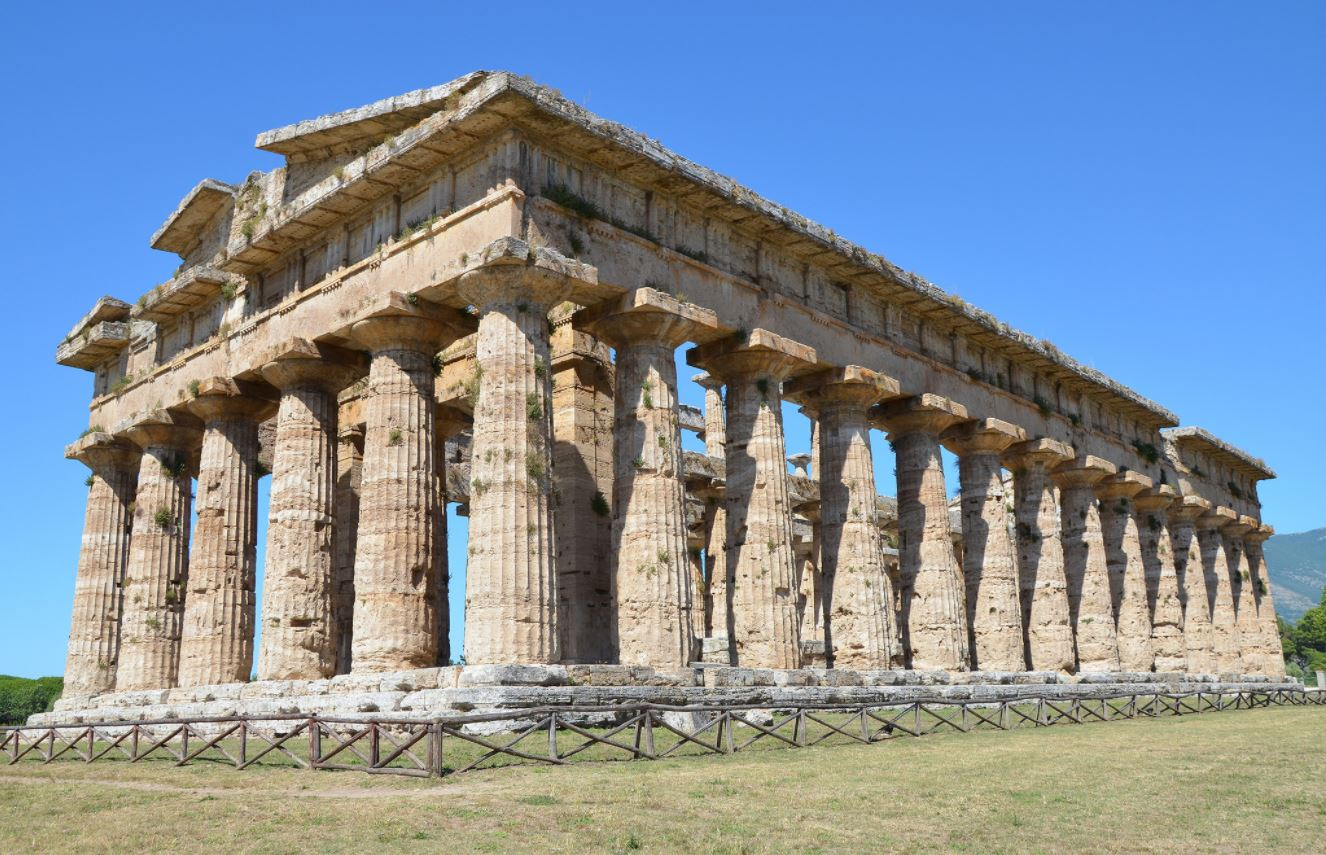One need only look at an ancient Greek temple to see that there was something special about their culture, something that looked toward what is challenging, strong, and enduring. Below, a picture of the Second Temple of Hera (Paestum), built around 460–450 BC . . .

The study of Ancient Greek, for me, is a wonderful look into some of the most interesting thought, completely foreign to Americans and American thought. The Ancient Greeks had orators who often learned to give speeches in support of an issue, then, give a speech against the very same issue, which is something that almost never seems to happen in America.
Imagine my thoughts upon the discovery that instead of using the word that would translate in English to "understand", in Ancient Greek, the Greek word for "understand" would actually translate to "over stand"! What a wonderful perspective!
For me, I see learning other languages as a window into a mystery . . . . the mystery of another culture . . . . something that you may never actually get a full picture of . . . . and that is one of the things that makes learning other languages all the more enticing.
For some of the Ancient Greeks, the true hero was the one who strove against impossible circumstances, even when they knew failure was inevitable, they remained defiant, they dared to even oppose the gods . . . . as in the legend of Prometheus, when he handed fire to man. There was a lot more to the Ancient Greek tragedy than most people realize. This is just one more reason why I think that it was detrimental to society when many schools stopped studying the classics . . . . the study of the classics were also the impetus that led to the flowering of the Renaissance.
To open, let's add a book on Ancient Greek, written by John William White - First Greek Book. You can also download a RTF file, which will work in Tachufind here John William White - First Greek Book
Not to long ago, I stumbled across what seemed to me to sound very close what I would imagine Ancient Greek really sounded like, it is a narration from the first chapter of Xenophon's Anabasis, from youtube, narrated by Ioannis Stratakis.
I also have an interlinear for Xenophon's Anabasis, in PDF format. With an Anabasis Dictionary Anabasis Dictionary, in PDF format.
Here is an Ancient Greek Etymological Dictionary:
Etymological Dictionary, in PDF format.
Antigone, with Greek word definitions as footnotes:
Antigone, in PDF format.
Homer's Iliad, Dual Language:
Homer's Iliad, in PDF format.
Homeric Greek Clyde Pharr:
Clyde Pharr's Homeric Greek, in PDF format.
If you have downloaded and are using Tachufind, you can import these zipped quizes for each chapter vocabulary.
You will need to import them by going to the quiz window and clicking the import button.
Homeric Greek Clyde Pharr Answer Key:
Clyde Pharr's Homeric Greek Answer Key, in PDF format.
Ancient Greek Study Book:
Ancient Greek Study Book, in PDF format.
Lastly, something I searched far and wide to find: Plutarch's Lives, Dual Language!
Plutarch's Lives Dual Language, in PDF format.
As an addendum to this, I have created derived works, interlinears of the sections on:
Demosthenes,
Cicero,
Sulla,
These are in rich text format, which makes it much better and faster for learning. Be advised, these interlinears DO NOT use normal margins, the margins are usually wider, because they are better all around in my view, and the best way to read these files is with Tachufind, the software app I have 100% free, available here on this website https://www.archeuslore.com/tachufind.html.
The method used to create these is mostly programmatically done, so the words underneath are mostly as they appear in the PDF, but better aligned, although still not a literal translation.
I'm tempted to go with a literal translation, but it is time consuming to do, and there are still a lot of sections left . . .
The section on Demosthenes itself took about a month's work, but I have improved the software program I am using to do it,
so the section on Cicero is better aligned and did not take as long as the previous work.